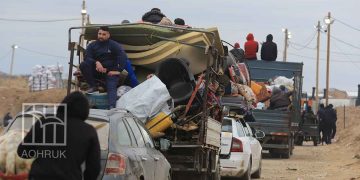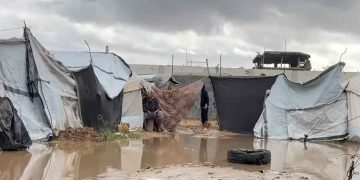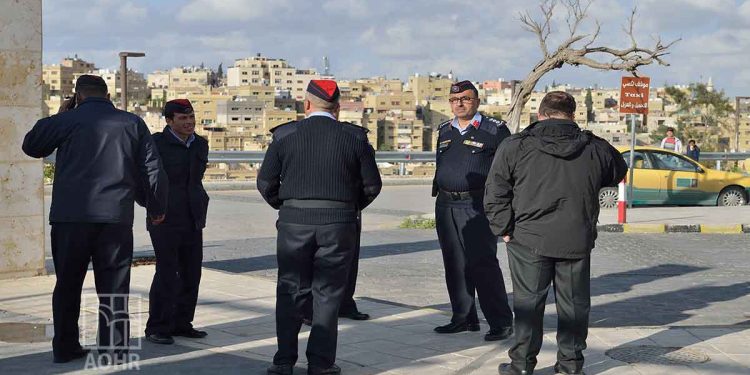In recent weeks, Jordan has witnessed an escalating campaign of arrests targeting political activists, academics, and members of opposition parties, many of whom have publicly expressed solidarity with civilians in Gaza or criticised government policies. The arrests, which followed peaceful demonstrations and public expressions of humanitarian concern, have raised serious alarm among human rights observers over the deteriorating state of civic freedoms in the country.
According to information obtained by the Arab Organisation for Human Rights in the UK, dozens of individuals were detained on charges ranging from “incitement” to alleged violations of Jordan’s cybercrime laws. These charges were reportedly applied without formal indictments or due process, prompting growing concerns about arbitrary detention and the misuse of legislation to stifle freedom of expression.
Among those detained were prominent activists such as Ezz al-Din Arafah, Osama Zghoul, and several students whose chants and slogans were deemed supportive of Gaza. Others, including doctors and political figures, were also reportedly targeted for their public stance on the humanitarian situation. In one high-profile case, paediatric consultant Dr Issam al-Khawaja was removed from his position at a public hospital following his participation in a solidarity event, a move denounced by rights advocates as a punitive measure with political undertones.
The arrests have been accompanied by court rulings imposing prison terms and financial penalties. Political activist Amer Rajeh was sentenced to six months in prison and fined 5,000 dinars based on a complaint filed under the cybercrime law. Critics argue that the law is increasingly being used as a tool to penalise dissent and curtail online expression.
The detentions are widely viewed as part of a broader pattern of shrinking civic space in Jordan, with authorities expanding the use of legal and administrative mechanisms to suppress political engagement. Observers have noted the frequent denial of legal representation, failure to disclose charges promptly, and prolonged pre-trial detention—practices that contravene Jordan’s international obligations under the International Covenant on Civil and Political Rights, to which the country is a state party.
The arrests also come in the context of heightened public mobilisation in response to the ongoing war in Gaza, with many Jordanians taking to the streets to denounce the humanitarian crisis. Targeting individuals solely for their peaceful expression of solidarity, analysts warn, may constitute a violation of international human rights norms, particularly those protecting freedom of assembly and opinion.
Calls for the immediate release of all detainees have grown louder, with rights groups urging the Jordanian government to halt the use of politically motivated arrests, ensure transparent legal procedures, and create a safe environment for peaceful civic participation. There is mounting pressure for a national dialogue on reforming restrictive laws and guaranteeing the fundamental rights of all citizens to express their views without fear of reprisal.
This wave of arrests has prompted renewed scrutiny of Jordan’s human rights record, particularly in light of international standards that prohibit punitive measures against individuals for expressing humanitarian or political views. As public solidarity with Gaza continues, the treatment of those who voice concern appears to be emerging as a critical test of the country’s commitment to human rights and democratic principles.

























